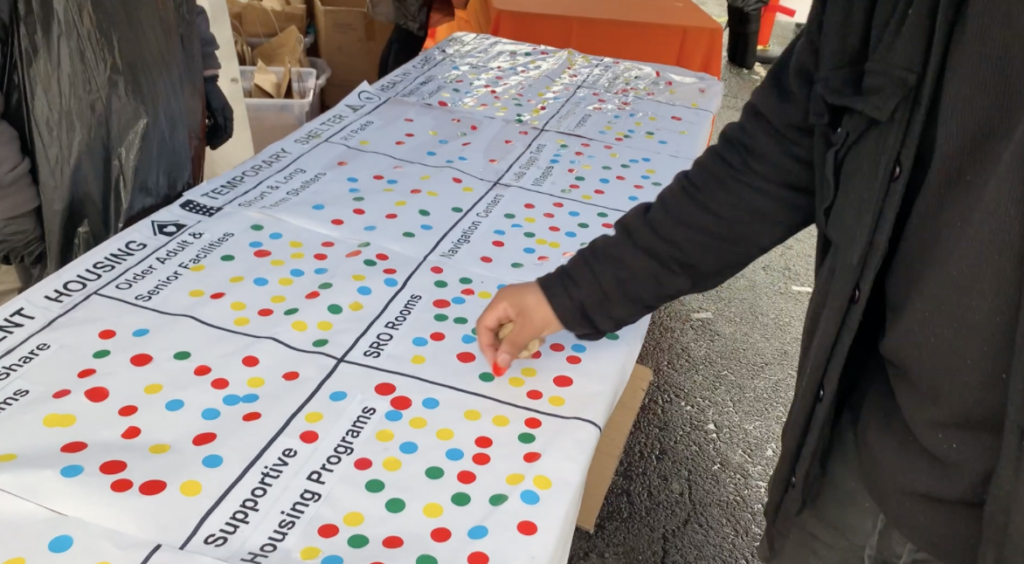Funding Solutions to Homelessness: What You Need to Know About Prop C
Homelessness affects all of us. Housed or unhoused, the homeless crisis hurts us all, and if we want to make progress on this issue, we need collective action. That’s why we launched the All In campaign, and that was the spirit behind the 2018 Prop C ballot measure. As residents of San Francisco, we each have a responsibility to understand both the crisis and its solutions.
Over the next few weeks, we’ll dive into what the passage of Prop C, now known as the Our City Our Home (OCOH) Fund, means for solutions to homelessness. Thanks to visionary leadership and incredibly hard work, the OCOH funds are starting to be released. This puts us at a critical juncture, and we can’t afford to miss this chance to use these resources to make our city the place we want it to be, a place where everyone has a home.
Our City, Our Home
OCOH funds bring a game-changing level of resources for solutions to homelessness, using public revenue from business taxes for services that support our unhoused neighbors and prevent homelessness. We asked Tipping Point Community Advisory Board Member, and Street Sheet contributor, TJ Johnston to share his reflections on how OCOH funds increase access to services for historically marginalized populations.
Overseeing how OCOH funds are spent, a nine-person committee, called the Our City Our Home (OCOH) Committee, was appointed by the Mayor, Controller, and Board of Supervisors, was tasked with identifying community needs and making funding recommendations.
Listening First
The Committee members have pledged to center equity in decision-making, promote transparency in how funds are allocated, and elevate the voices of people with lived experience. OCOH Committee Chair Shanell Williams explained our collective responsibility in ending homelessness during our recent webinar about COVID-19 and homelessness.
The Committee members have hosted community listening sessions to recommend how Prop C money should be spent. Based on those community conversations, and a review of many reports, plans, and proposals prepared by City Departments, the Committee will compile and vote on recommendations on April 20. From there, the recommendations go to the Mayor and the Board of Supervisors.

Our next blog post will share the major themes from the listening sessions for a first-hand understanding of community needs and break down how OCOH funds will be spent. And when the recommendations come out later this month, we’ll explain those too to answer any lingering questions about how we can capitalize on this moment to significantly reduce homelessness in our city.
What can I do?
Sign the pledge to stay connected with All In to get the latest updates on the OCOH process.

